babywearing 101
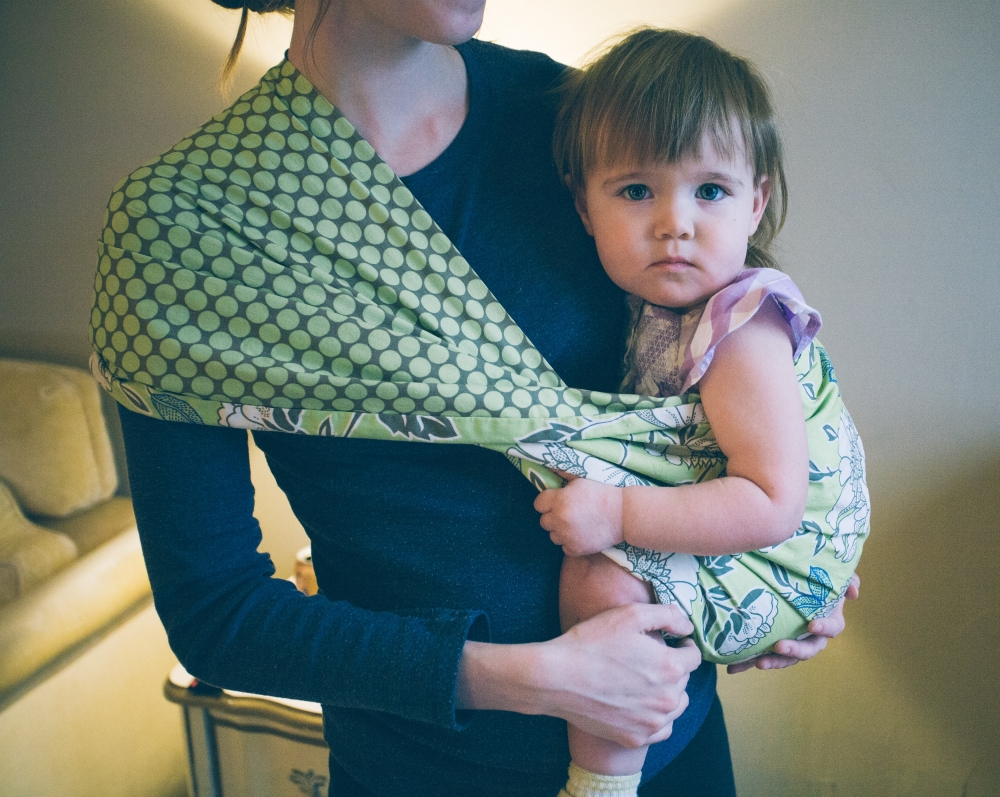
I love babywearing (so does Indy)! There are tons of benefits for baby - you can read about some of them here - and it's convenient and comforting for parents as well (I can't imagine trying to do laundry with a fussy newborn or navigate an airport without a baby carrier!) You can breastfeed in a baby carrier, lull a baby to sleep, go on a lengthy hike in the woods, or calm an over-stimulated toddler.
I've been wanting to do this post for a long time, because similarly to cloth diapering there are a lot of different options and opinions out there, and it can be overwhelming! So I just want to share my experience with some of the various styles, and what I like and dislike about them, plus some great vintage Indy pictures!
*One style of carrier that you will not see below is a Baby Bjorn (or any other carrier, like Snuggli or Infantino, that does not allow for the proper positioning of baby's legs). Any carrier or position that lets baby's legs dangle with their knees below their hips puts the full weight of the baby on their groin. Not only is this uncomfortable, but it can compresses their spine and interefere with natural curvature, put pressure on the femoral arteries and nerves, and can also interfere with proper develoment of the hip bones (contributing to a condition called hip dysplasia). That's why baby carriers like the Baby Bjorn have earned the not-so-affectionate nickname crotch danglers in the babywearing community. PROPER POSITIONING: ideally, baby should be facing towards mom "froggy style" with their knees at or above their hips. This spreads baby's weight across their bum and thighs, and allows for proper positioning and development of spine and hips.
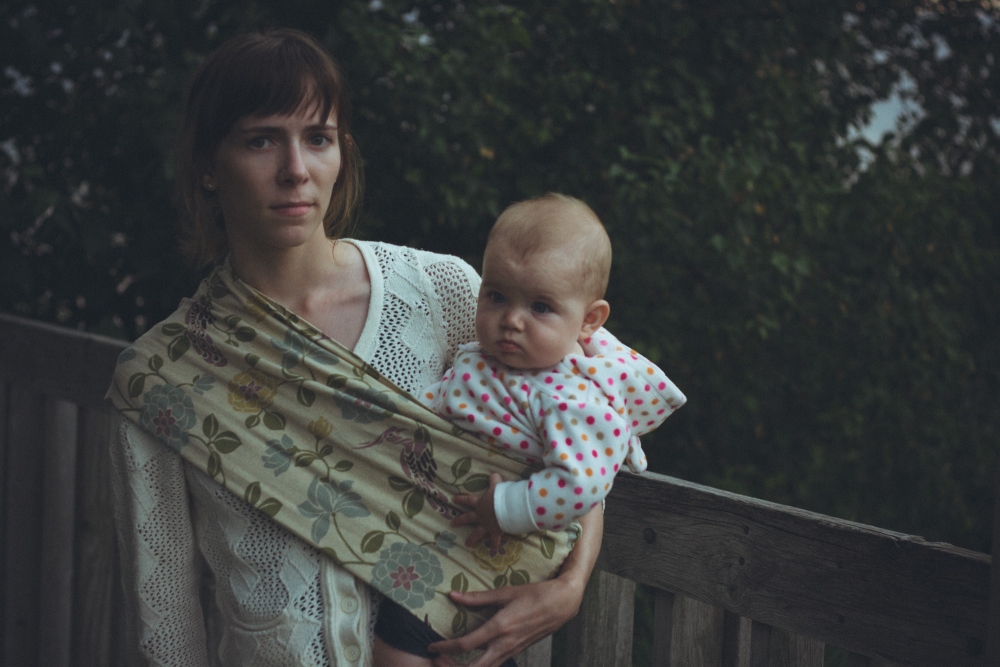
(Indy, 7 months)
First up: Slings
There are two types of slings: tube slings (a sewn, circular piece of fabric) and ring slings (a long piece of fabric which is secured in a loop and adjustable via a ring). I have only tried tube slings, so that's what I'll focus on.
Pros:
- folds up small (stash in your diaper bag)
- relatively inexpensive
- easy to master
- can sew your own with minimal sewing skills
- quick in and out
Cons:
- not comfortable for extended periods of time
- sized - might not fit both parents or baby at every size (opting for a ring sling solves this problem)
- difficult to properly position a newborn
- not my favorite for a sleeping baby
Summary - while this is definitely not my go to baby carrier, their slim size means I would recommend everyone has one stuffed in their diaper bag for a quick trip to the grocery store or when you forgot the other carrier at home. Great brand: Peanut Shell.
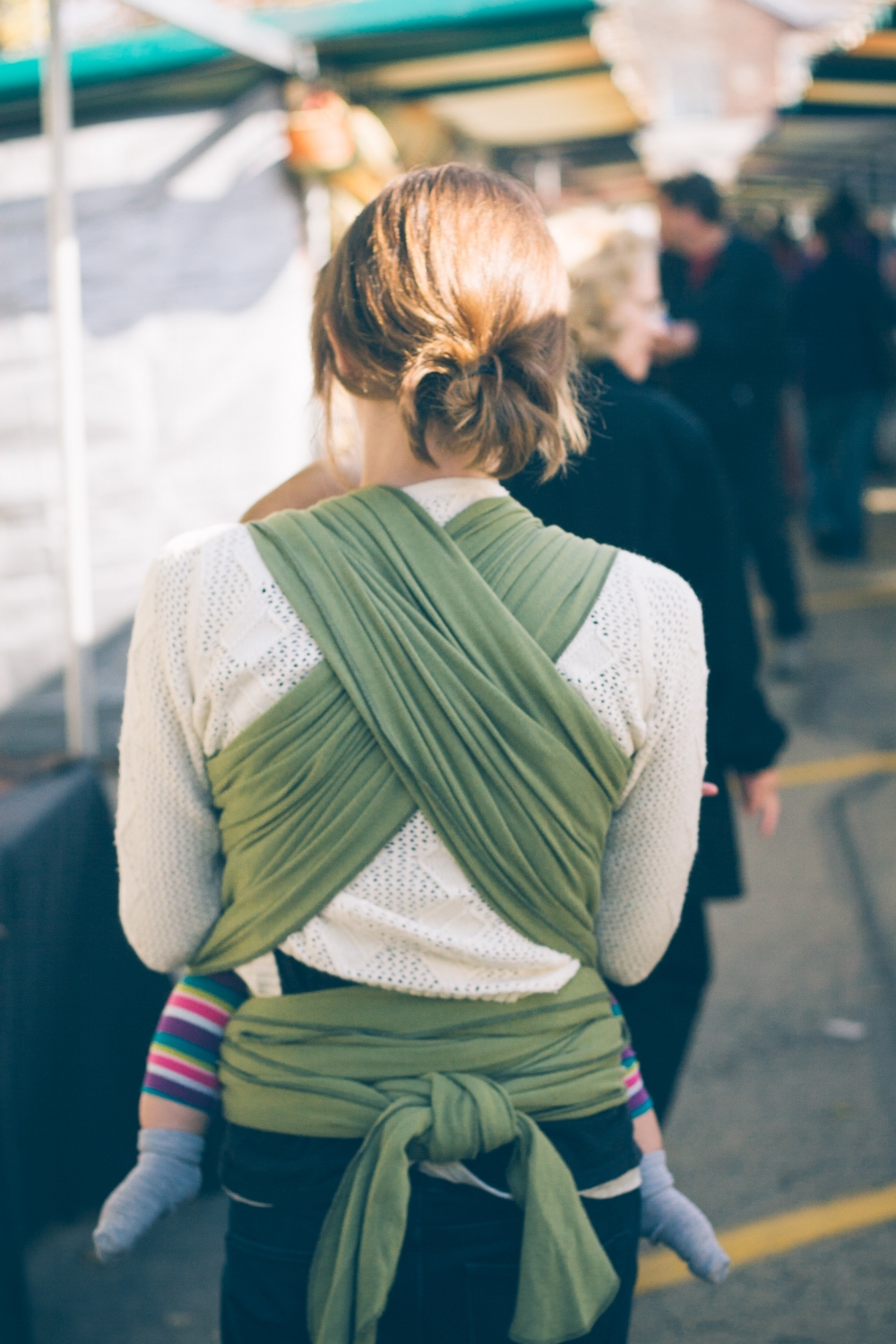
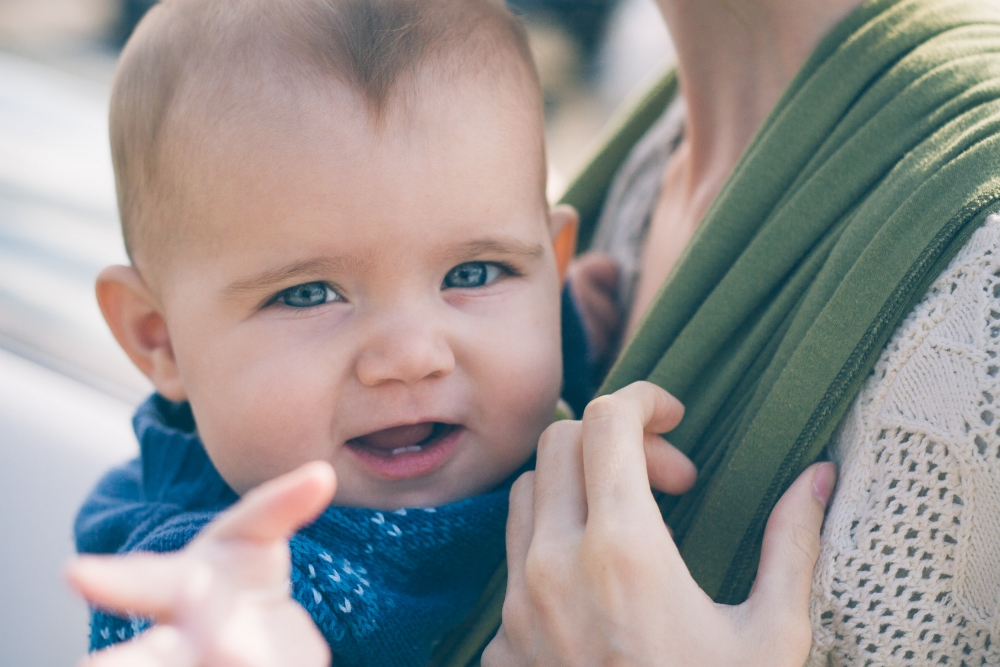
(Indy, 9 months)
Wraps
There are two types of wraps: woven and stretchy. I have not tried a woven, but the first baby carrier I used was a Moby (one of the most popular brands of stretchy wraps). The two different types of fabrics have slightly different pros and cons, so while I'm mostly commenting on stretchy wraps, I'll throw in what woven wrap info I know.
Pros:
- folds up pretty small
- relatively inexpensive (NOT true of quality woven wraps - though you can buy used)
- very comfortable
- "poppable" (once wrapped around you, the stretchy material allows you to pop baby in and out throughout the day, obviously this is not true of woven wraps since the material has no stretch)
- great for newborns
- great for sleeping babies
- one size fits all
- several different positioning options
Cons:
- the Moby wrap claims to work until 35 lbs., but I find (as do most people) that they max out at around 15 lbs. The weight of baby causes the stretchy fabric to sag, making for less than great support and the need for frequent adjustments (a woven wrap will last much much longer because the study fabric supplies better support)
- there is a definite learning curve (but you get the hang of it)
- you cannot carry baby on your back (stretchy fabric means a baby can "buck" out, but woven wraps are safe to back carry in)
- all that fabric can get sweaty!
Summary - this is my favorite baby carrier for newborns and small babies! The whole wrap is soft, and hugs baby warmly to your body in a very natural way. But if you only want one carrier, this one just won't last you to toddlerhood.
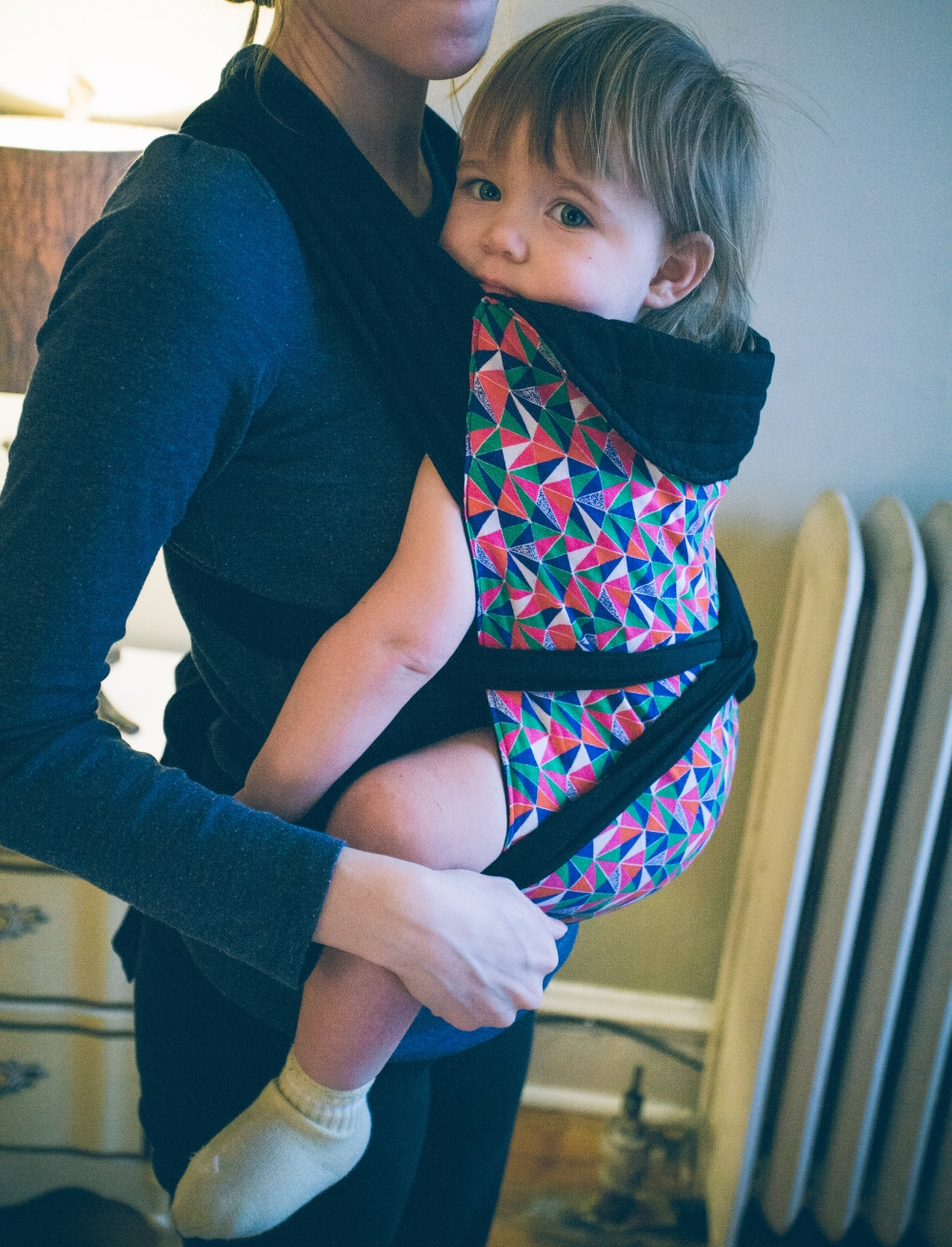
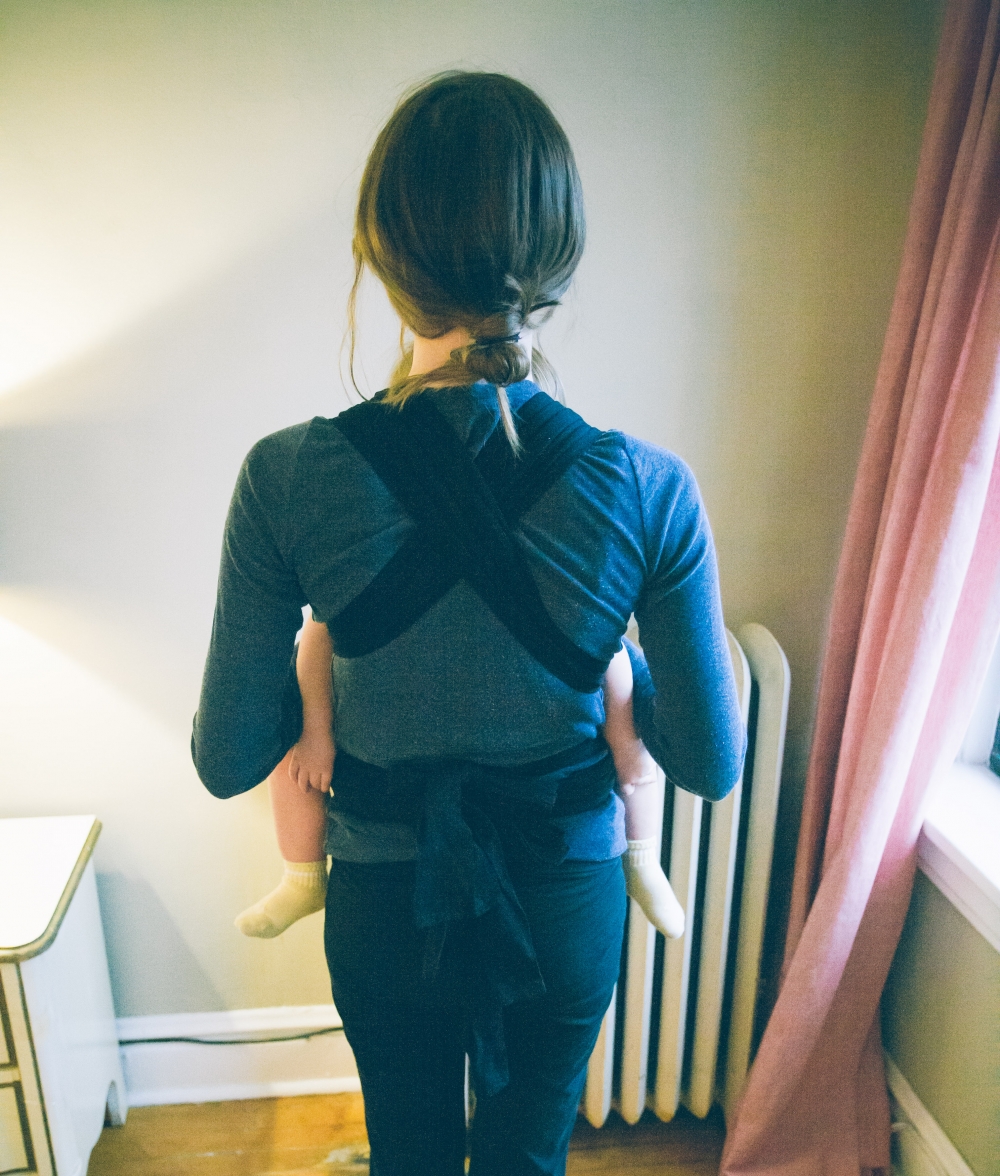
(Indy, almost 2 years!)
Soft-structured Carriers
There are a lot of different brands of soft-structured carriers (SSC, these are carriers that have a main body and straps, but do not have any sort of metal frame like baby hiking back-packs). Mei Tais ("may-ties", the carrier you see above) are a subset of SSC originally from Asia, and are really the grandaddy of all soft-structured carriers.
Pros:
- fit pretty comfortably from birth to toddlerhood
- can be relatively inexpensive (though well-known brands can be a bit pricier)
- I think they are the cutest carrier!
- variety of possible positions, including back carry
- fold up pretty small
- one size fits most
Cons:
- tying the straps can be a learning curve
Summary - Comfortability is really going to depend on the brand. While handmade carriers from places like etsy are going to run cheaper than well-known brands, they are most likely going to have less padding, so keep that in mind. Mei Tais are a great all around carrier with few limitations. I bought mine on etsy right here, or a great, sturdy brand is BabyHawk.

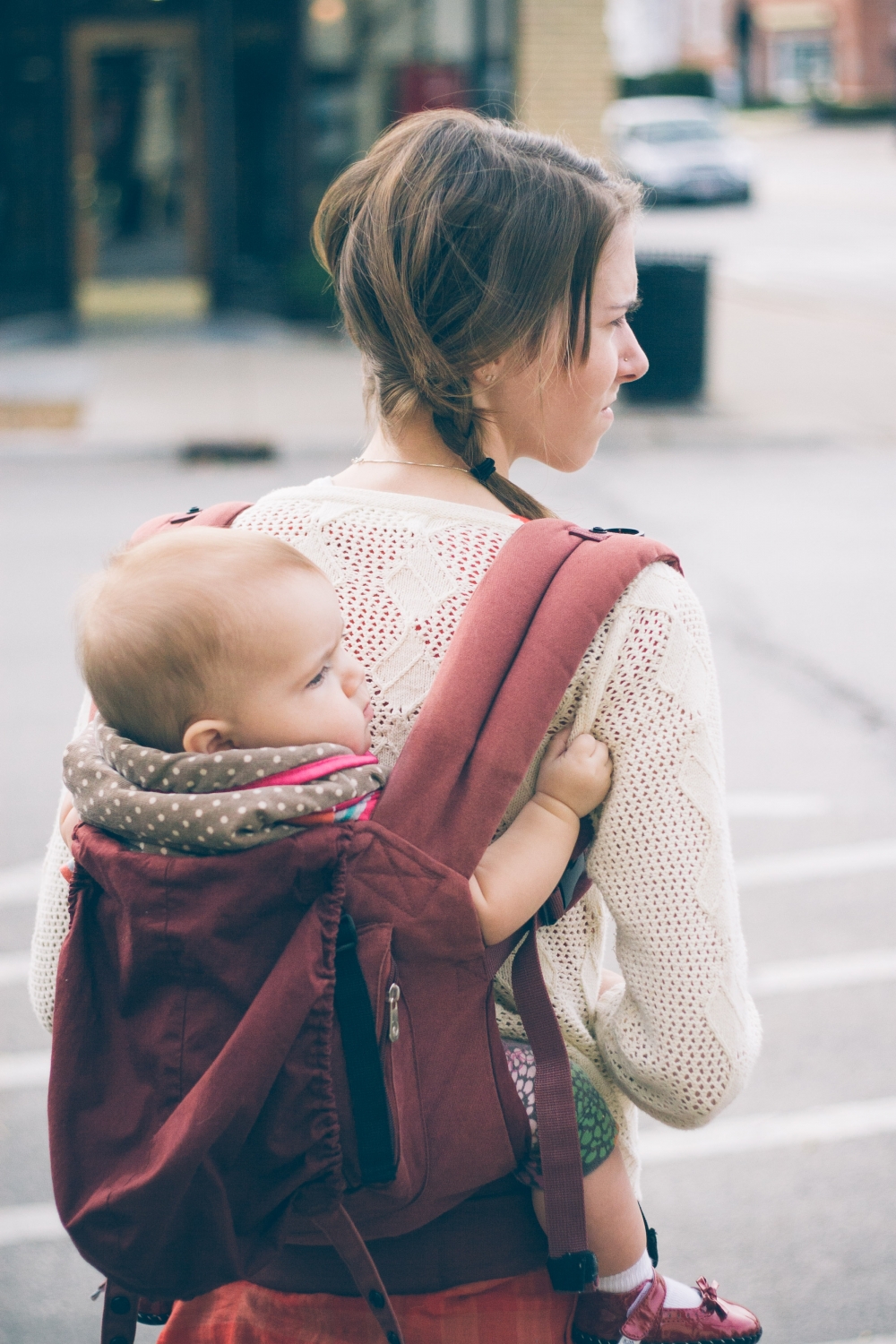
(Indy, 9 months)
While there are many brands of soft-structured carriers, Ergo is one of the best known and well-loved.
Pros:
- most comfortable! The straps boast super thick padding, and the weight of baby is expertly distributed with no pressure points.
- great for hiking and extended periods of time
- fits from birth (if you buy an infant insert) well into toddlerhood (it's rated up to 45 lbs! We still carry Indy in the Ergo at two years old, and don't foresee stopping anytime soon)
- variety of positions, including back carry
- my favorite for sleeping babies (you can see the sleeping-hood in action below)
- fully adjustable
- easy and fast to get baby in and out
- super daddy friendly!
Cons:
- pricey (buy used if you can - I only paid about $70, and the lady included her infant insert for free)
- bulky - you won't be stuffing this one in your diaper bag
Summary - I saved what I consider to be the best, for last. While I prefer different carriers at different ages and for different reasons, but if someone forced me to pick only one, it would be the Ergo, hands down. I don't think babies need a lot of gear, but I would definitely put my Ergo in the "need" category.
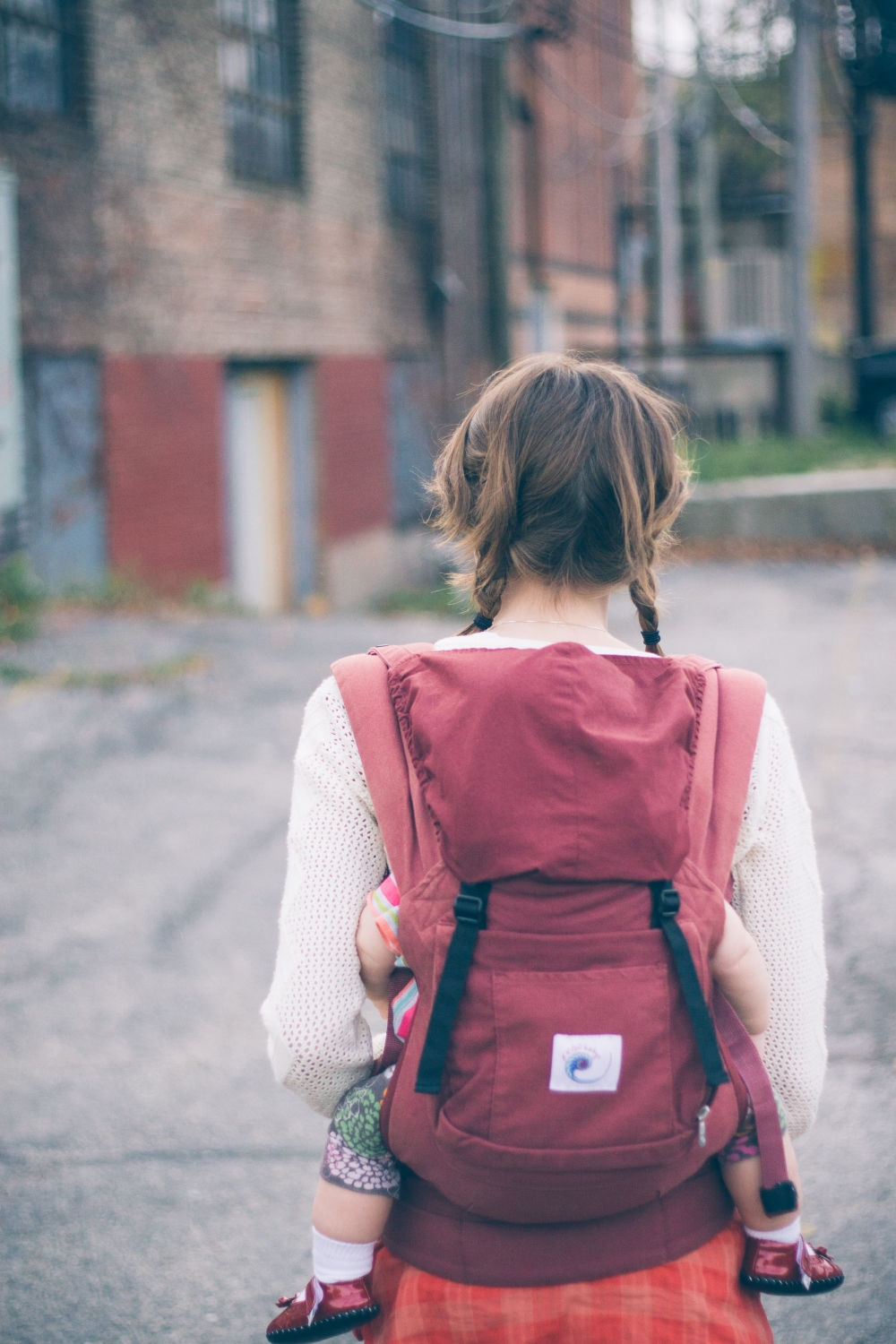
Don't hesitate to ask if you have any questions!

